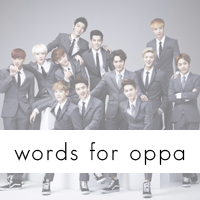This is very important when you're learning Korean language. It's one of the basics too. You have to/must speak in formal/honorific when you're talking to an elder person(teacher, senior, grandparents/parents, ministers) or someone you just met or to show politeness.
Formal
Sentences that ends with
1. 이에요 (i-e-yo)
2. 예요 (ye-yo)
3. 요(yo)
4. 입니다 (ibnida)
5. 있습니다 (issseubnida)
6. 입니까 (ibnikka)
7. 이겠습니다 (igessseubnida)
8. 이겠어요 (igess-eoyo)
9. 하세요 (haseyo)
In formal form, suffix -님(nim) to address someone.
아버지(abeoji) → 아버님(abeo-nim) (father)
어머니(eomeoni) → 어머님(eomeo-nim) (mother)
형(hyung) → 형님(hyung-nim) (brother)
선생님 (seonsaengnim) (teacher)
-씨(ssi) is added to a person name, in formal form. Usually with one's full name or the given name without the first name. But attaching -씨 to first name/surname, is quite rude.
Example:
장근석씨(jang-geunseogssi) - Mr. Jang Keun Suk or
근석씨(geunseogssi) - Mr Keun Suk
Pronouns
I/my/myself
Formal: 저(jeo),제(je)
Informal: 나 (na), 내(nae), 난(nan)
You/yours
Formal: 당신(dangsin)
Informal: 너(neo), 네(ne), 넌(neon)
Usually informal, 반말(banmal) is spoken to family members or close friends only.
Informal
1. 이다 (i-da)
2. 이겠다 (igessda)
3. 이냐 (i-nya)
4. 였다 (yeossda)
5. 이겠느냐 (igessneunya)
6. 야 (ya)
Example:
The following sentences are informal first, then follow by formal form.
Mr. Jang Keun Suk is so cool/handsome.
장근석씨 너무 멋있다(jang-geunseogssi neomu meos-issda)
장근석씨 너무 멋있어요(jang-geunseogssi neomu meos-iss-eoyo)
It rained today.
오늘은 비가 왔어(oneul-eun biga wass-eo)
오늘은 비가 왔어요(oneul-eun biga wass-eoyo)
I want to watch drama.
드라마 보고싶다(deulama bogosipda)
드라마 보고싶어요(deulama bogosip-eoyo)
My head hurts!
머리 너무 아파!(meoli neomu apa!)
머리 너무 아파요!(meoli neomu apayo!)
I don't have class yesterday.
어제 수업이 없다(eoje sueob-i eobsda)
어제 수업이 없어요(eoje sueob-i eobs-eoyo)
My name is Victoria.
내 이름은 Victoria 이다(nae ileum-eun Victoria ida)
제 이름은 Victoria 있습니다(je ileum-eun Victoria issseubnida)
What is this?
이게 뭐야 ? (ige mwoya)
이게 뭐 예요? (ige mwo e-yo)
Don't go home.
집에 가지마(jib-e gajima)
집에 가지마요(jib-e gajimayo)
Please give me a cup of coffee.
커피 한잔 줘(keopi hanjan jwo)
커피 한잔 주세요(keopi hanjan juseyo)
Had your dinner?
저녁 먹었어? (jeonyeog meog-eoss-eo)
저녁 먹었어요? (jeonyeog meog-eoss-eoyo)
I know/Okay/Got it
알았어 (ar-ass-eo)
알았어요 (ar-ass-eoyo) (formal)
알겠습니다 (algessseubnida) (formal)
Where are you now?
지금 어디 냐? (jigeum eodi nya?)
지금 어디예요? (jigeum eodi-e-yo?)
I'm reading a book.
책이 읽고있어 (chaeg-i ilg-go iss-eo)
책이 읽고있어요 (chaeg-i ilg-go iss-eoyo)
Sorry
미안해 (mianhae)
미안해요 (mianhaeyo)
I'm busy.
나 바빠(na bappa)
저는 바빠요(jeoneun bappayo)
Labels: Hangul
|
Vocab List
Hello: 안녕하세요 (annyeonghaseyo)
How are you: 잘 지냈어요?(jaljinaess-eoyo)
Nice to meet you: 반가워요(bangawoyo)
Thank you: 감사합니다(gamsahabnida)
Welcome: 어서오세요(eoseooseyo)
I love you: 사랑해요 (saranghaeyo)
I like you: 좋아해요(joh-ahaeyo)
Good Morning: 굿모닝 (gutmoning)
Good Morning: 좋은아침(joh-eun-achim)
Good Night: 잘자요 (jaljayo)
Good Night: 안녕히주무세요 (annyeonghijumuseyo)
Goodbye: 잘가요 (jalgayo)
Goodbye: 안녕하세요 (annyeonghaseyo)
Goodbye: 안녕히가세요(annyeonghigaseyo)
Awesome: 대박!(daebak) / 짱(jjang)
Have fun: 즐거운 시간 보내세요(jeulgeoun sigan bonaeseyo)
Have a nice day: 즐거운 하루 되세요(jeulgeoun halu doeseyo)
Enjoy your meal: 맛있게드세요(mas-issgedeuseyo)
오다: to come
마시다: to drink
좋아하다: to like / prefer
먹다: to eat
쉬다: to rest
생각하다: to think
주다: to give
가다: to go
운동하다: to exercise
나타나다: to appear
듣다: to hear
벗다: take off / undress
약속하다: to promise
거짓말하다: to lie
고백하다: to confess
빼다: to remove / take out
죄송하다: to be sorry
찾다: to find, to look for
준비하다; to prepare
앉다: to sit
자다: to sleep
사다: to buy
걸리다: to take (time)
씻다: to wash
즐기다: to enjoy / have fun
가지다: to have
기억하다: to remember
포기하다: to give up
내다: to pay / to place / to give
사용하다: to use
감추다: to hide
이기다: to win
팔다: to sell
틀리다: to be wrong
싸우다: to fight
대답하다: to answer
내려오다: to come down
웃다: to laugh
남기다: to leave
읽다: to read
소개하다: to introduce
출발하다: to depart
후회하다: to regret
도착하다: to arrive
버리다: to throw
싫어하다: to dislike / hate
꿈꾸다: to dream
남다: to be left / to remain
시작하다: to start
끝나다: to finish
자르다: to cut
믿다: to believe
보내다: to send
배우다: to learn
만들다: to make
내리다: to fall / come down
쓰다: to write / to use / to wear (hat/glasses)
울다: to cry
갖다: to have
웃다: to laugh
도와주다: to help / give assistance
보다: to see
닦다: to wash / clean
일어나다: to get up
조심하다: to becareful
걷다: to walk
원하다: to want / wish
뛰다: to jump
춤추다: to dance
싸우다: to fight / argue
주다: to give
Formal and Informal Saturday, 27 October 2012
This is very important when you're learning Korean language. It's one of the basics too. You have to/must speak in formal/honorific when you're talking to an elder person(teacher, senior, grandparents/parents, ministers) or someone you just met or to show politeness.
Formal
Sentences that ends with
1. 이에요 (i-e-yo)
2. 예요 (ye-yo)
3. 요(yo)
4. 입니다 (ibnida)
5. 있습니다 (issseubnida)
6. 입니까 (ibnikka)
7. 이겠습니다 (igessseubnida)
8. 이겠어요 (igess-eoyo)
9. 하세요 (haseyo)
In formal form, suffix -님(nim) to address someone.
아버지(abeoji) → 아버님(abeo-nim)
(father)
어머니(eomeoni) → 어머님(eomeo-nim)
(mother)
형(hyung) → 형님(hyung-nim)
(brother)
선생님 (seonsaengnim)
(teacher)
-씨(ssi) is added to a person name, in formal form. Usually with one's full name or the given name without the first name. But attaching -씨 to first name/surname, is quite rude.
Example:
장근석씨(jang-geunseogssi) - Mr. Jang Keun Suk or
근석씨(geunseogssi) - Mr Keun Suk
Pronouns
I/my/myself
Formal: 저(jeo),제(je)
Informal: 나 (na), 내(nae), 난(nan)
You/yours
Formal: 당신(dangsin)
Informal: 너(neo), 네(ne), 넌(neon)
Usually informal, 반말(banmal) is spoken to family members or close friends only.
Informal
1. 이다 (i-da)
2. 이겠다 (igessda)
3. 이냐 (i-nya)
4. 였다 (yeossda)
5. 이겠느냐 (igessneunya)
6. 야 (ya)
Example:
The following sentences are informal first, then follow by formal form.
Mr. Jang Keun Suk is so cool/handsome.
장근석씨 너무 멋있다(jang-geunseogssi neomu meos-issda)
장근석씨 너무 멋있어요(jang-geunseogssi neomu meos-iss-eoyo)
It rained today.
오늘은 비가 왔어(oneul-eun biga wass-eo)
오늘은 비가 왔어요(oneul-eun biga wass-eoyo)
I want to watch drama.
드라마 보고싶다(deulama bogosipda)
드라마 보고싶어요(deulama bogosip-eoyo)
My head hurts!
머리 너무 아파!(meoli neomu apa!)
머리 너무 아파요!(meoli neomu apayo!)
I don't have class yesterday.
어제 수업이 없다(eoje sueob-i eobsda)
어제 수업이 없어요(eoje sueob-i eobs-eoyo)
My name is Victoria.
내 이름은 Victoria 이다(nae ileum-eun Victoria ida)
제 이름은 Victoria 있습니다(je ileum-eun Victoria issseubnida)
What is this?
이게 뭐야 ? (ige mwoya)
이게 뭐 예요? (ige mwo e-yo)
Don't go home.
집에 가지마(jib-e gajima)
집에 가지마요(jib-e gajimayo)
Please give me a cup of coffee.
커피 한잔 줘(keopi hanjan jwo)
커피 한잔 주세요(keopi hanjan juseyo)
Had your dinner?
저녁 먹었어? (jeonyeog meog-eoss-eo)
저녁 먹었어요? (jeonyeog meog-eoss-eoyo)
I know/Okay/Got it
알았어 (ar-ass-eo)
알았어요 (ar-ass-eoyo)
(formal)
알겠습니다 (algessseubnida)
(formal)
Where are you now?
지금 어디 냐? (jigeum eodi nya?)
지금 어디예요? (jigeum eodi-e-yo?)
I'm reading a book.
책이 읽고있어 (chaeg-i ilg-go iss-eo)
책이 읽고있어요 (chaeg-i ilg-go iss-eoyo)
Sorry
미안해 (mianhae)
미안해요 (mianhaeyo)
I'm busy.
나 바빠(na bappa)
저는 바빠요(jeoneun bappayo)
Labels: Hangul



1 Comments:
Just a tiny correction: it's i-E-yo 이에요 , not i-ye-yo. It might sound like that, but it's still 'e' . You're welcome^^
Post a Comment
... Back to the blog?